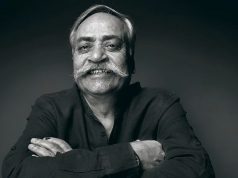 By Dr Satish C Aikant
By Dr Satish C Aikant
‘Poetry makes nothing happen,’ wrote WH Auden in his elegy for YB Yeats who died in 1939. The line is often taken out of context as a critique of literary culture in general though a subsequent line of the poem disavows this interpretation with the affirmation that the arts are crucial to the survival of human culture. To reduce literature to its usefulness, in a utilitarian sense, is to miss the sheer pleasure of the word and sound that make it literature in the first place. The life that literature really equips us to live is not the one Wordsworth derided as devoted to ‘getting and spending’, but the other life of inwardness and imagination. Unlike the sciences, humanities are not considered utilitarian or having practical applications. Yet there is a persistent tendency in our culture to offer such pragmatic excuses for devaluation of art, as if something that helped us gain an advantage in the struggle for livelihood alone was worthy of respect.
Obsessed with commercial gains and profit motive, nations, and their systems of education, are heedlessly discarding skills that are needed to keep democracies vibrant. If this trend continues, we shall soon be producing generations of useful machines, rather than complete citizens who can think for themselves, take a broader humanistic worldview, and understand the significance of traditions. India, otherwise proud of her multifarious knowledge traditions, is following the globally mandated path of singular pursuit of technology that undermines lateral thinking. We ignore the faculties of thought and imagination that make us human and subject ourselves to manipulations by global agencies disregarding cultural specificities. With the overriding concern for profitability in the global market, values precious for the future of democratic societies are in danger of getting lost.
Literature is about creating and recreating imaginative worlds and crafting stories. Indeed, it would be impossible to imagine human civilisation without stories, whether recorded in writing or passed down orally in the form of legends or myths. The usefulness of literature has to be seen in a wider context of its production, dissemination and consumption. Literature’s capacity to influence political and societal opinions and developments, its shaping of public culture, its place as a commodity in the marketplace, and its educational value in developing creativity and intellectual dispositions are all part of its overall value and its place in society and in the life of the nation.
The study of literature introduces us to imaginary worlds and new experiences, so that our conceptions of human possibility transcend the boundaries and limitations of time and space. Arts and humanities also make us pause and reflect on the human condition. Sociologists have coined the term ‘liquid modernity’ to describe the ephemeral and the inconstancy that pervades contemporary social organisation. Art takes us beyond these debilitating conditions and widens our horizon of ideas.
Reading and writing are solitary activities. But they acquire meaning and purpose in a social milieu. This is where the performative aspect comes into play. Public recitations date back to the Olympics in ancient Greece when poets and musicians prominently featured along with those who participated in the Games. When the print revolution began with William Caxton setting up the first printing press in 1476, and the spread of literacy widened the reading public, authors began reading their works to large audiences. Several Victorian writers such as Dickens gave public readings of their novels. The literate public began to read intensively devouring newspapers, journals, and works of history, philosophy, science, theology, and literature. It was an age when the written word became the great equaliser, a bridge between power and the people, between the elite and the proletariat. The practice caught on as public spaces such as the coffee houses became popular haunts for poets, novelists, artists, and not the least, for the political leaders. In Bengal there is a fascinating institution called ‘adda’ which is a unique feature (now in decline) of Bengali culture with its attendant spaces of the coffee houses, bookshops, journals and theatre giving rise to a rich carnival of popular culture. The Coffee House became a veritable melting pot of ideas and ideologies and shaping the cultural space. The Indian Coffee House chain across India in cities like Delhi, Allahabad, Lucknow and Shimla became a hub of various cultural and intellectual activities, attracting writers, poets, artists, and thinkers who would engage in debates, discussions, and creative collaborations.
Today, however, reading habits are in decline. The literary scene today exposes a growing vacuum lacking the cultural depth and societal urgency that once defined great writing. Ironically, literary culture in the marketplace has turned upscale with festivals, launches and publishing houses serving as elite social gatherings dominated by urban, Anglophone writers. Our literary spaces remain largely elite-driven and corporate-funded. True literature grows not under chandeliers or logos but thrives in the collective consciousness of a society that reads, questions, and debates, often looking askance at the establishment.
Literature does not parade its charms in the market, and it does not insistently clamour for attention. Literary events and book fairs should not be presented as overtly market-driven spectacles promoting a celebrity culture but as democratic spaces drawing upon popular culture. In the latter sense literature as a moving human performance is empowering and enfranchising to individuals and to communities. But unfortunately, literature has become unfashionable, and its relevance to the world we live in is not generally accepted.
It can be argued that the political is not necessarily visible, nor restricted to public actions, and that people cannot credibly say that art does not interface with people’s internal, private spaces in a political manner. We need to emphasise the agency and the active engagement of the reader or listener, and the huge significance that this kind of engagement can have for individuals. The false opposition between commercial and popular culture is characteristic of much of the discourse that sometimes circulates within the literary circles. It is part of the circulation of the myth of the disinterested artist that continues to pervade literary culture and colour the conceptions of cultural value.
In today’s digital world, dominated by algorithmic feeds and instant attention, the culture of reading – slow, deliberate, and reflective – is being replaced by a culture of instant reaction. Attention spans have shortened among students. Reading, once a hallmark of intellectual equipment, is collapsing even in the world’s best universities. Those who still ‘read’ are often consuming AI-generated text – social media content, blog posts, eroding the taste for books. The book becomes a superfluous accessory, not a cognitive and cultural necessity.
The new technologies are difficult to resist – they do offer too many benefits to most people. Though these benefits never come without costs. Much of the paper-based writing has been replaced by marks on computer screens. Yet the niche formerly occupied entirely by reading and writing on paper has by no means disappeared. The central functions of reading and writing continue to be supported by the new technologies.
All the same, the digital age is here, and its technologies must be embraced. I have no desire to go back to the time when I wrote on a manual typewriter. I like living in the present reconciled to the digital tools, as long as they are not too intrusive and domineering. I may indulge the screens to the extent I can, but I will always feel compelled to buy the book for my reading and will always be drawn by its physical appeal, its tactile sensation and its adaptability to my reading habits when I am done with the screens.
The enjoyment of stories not only provides relief from boredom, it also adds value to life and reminds one of the endless creativity of the human imagination. In a world given increasingly to utilitarian values and the Machine, the book is a symbol of imagination and sensibility, a symbol of Nature set against the forces relentlessly stripping humanity of its core values. As Robert Musil put it, ‘Every step forward is at the same time also a step backward.’ The paradox challenges the notion of a simple, linear path of human advancement.
Saul Bellow in his Nobel Lecture reminds us that Hegel long ago observed that art no longer engaged the central energies of man. These energies were now engaged by science, arguing that in the modern era, the primary mode of human understanding and spiritual engagement shifted from art to science. Even so, returning to Auden, poetry does make things happen. When we read a poem or any work of creative writing, kuch kuch hota hai (to use the title of a popular Hindi film) in an intangible way or at a subterranean level, though it may not give us any material dividends. In any case, the digital world and microchip do not signal redundancy of the book. Not yet.
(The writer is former Professor and Head of the Department of English, HNB Garhwal University.)







